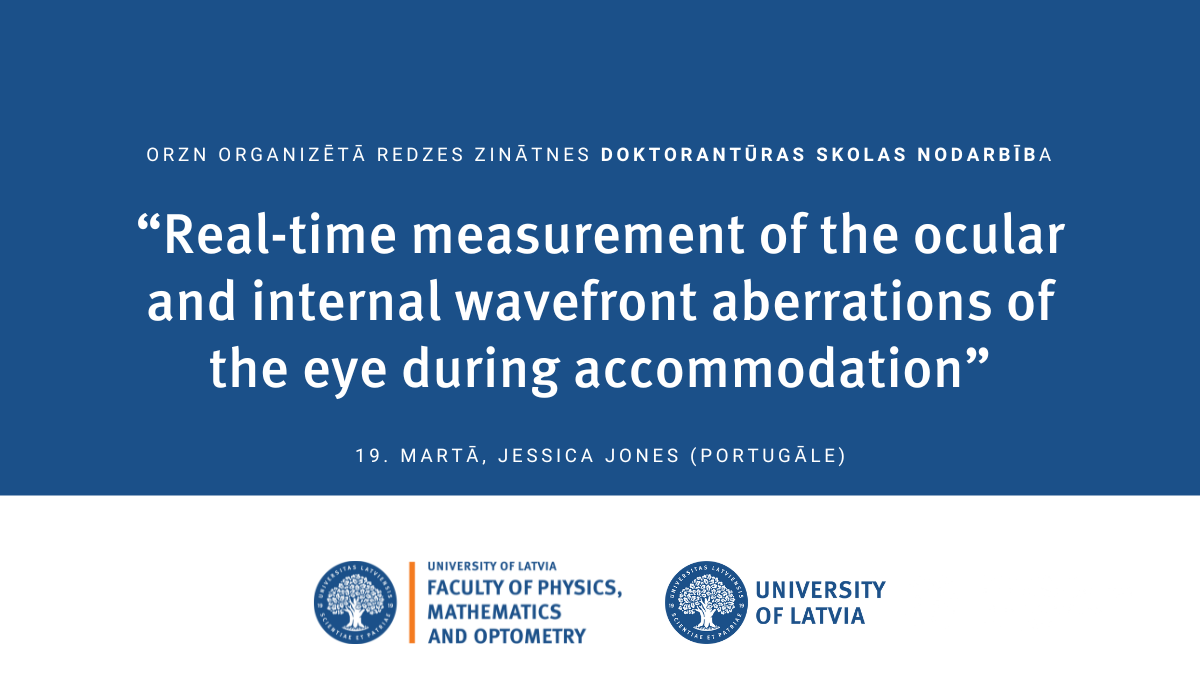
Semināra tēma: Real-time measurement of the ocular and internal wavefront aberrations of the eye during accommodation.
Redzes zinātnes doktorantūras skolas nodarbība notiks LU Dabas mājā, Jelgavas ielā 1, 433. telpā un tiešsaistē BBB platformā: https://bbb.lu.lv/b/dac-hsz-czp-gv7
Nodarbībai jāpiesakās līdz 18. martam, aizpildot anketu https://ej.uz/redzeszinatne19032024
___
About Jessica Gomes
She obtained her degree in optometry and vision science from the University of Minho, Portugal in 2013, a master in advanced optometry from the same university and a specialisation in optical technologies from the University of Aveiro, Portugal. She is currently a Ph.D. student in the Doctoral Programme in Optometry and Vision Science at the Visual Optics and Ophthalmic Instrumentation Research Lab, at the Centre of Physics of the University of Minho, Portugal. Since 2017, she has participated in research projects and is author and co-author of 13 papers and 18 conference participations with posters and oral presentations. Her work focuses on visual optics, wavefront sensing, adaptive optics, ocular accommodation and accommodative dysfunctions.
Abstract
To perform near vision tasks, a dynamic and accurate accommodative system is required to maintain a well-focused image on the retina. This focusing mechanism is achieved by changing the shape and thickness of the crystalline lens, which alters its optical properties and consequently the optical aberrations of the eye. These aberrations affect image quality and may therefore play a role in the activation and control of the accommodation mechanism. Studying the optical changes in the lens during accommodation can improve our understanding of the accommodative process. Furthermore, a detailed characterisation of the accommodative behaviour can help to detect changes in the accommodative response.
This talk will focus on the study of changes in ocular aberrations with accommodation, their impact on the characteristics of the accommodative response and their relationship with reported visual symptoms. It will be divided into several subtopics. The first will be the effect of near-vision tasks on the optical quality of the eye. The effect of accommodation on peripheral aberrations will also be investigated. In addition, understanding how the eye's optics change with accommodation may be helpful in understanding the origin of accommodative dysfunction. Therefore, the use of wavefront sensing for objective detection of accommodative dysfunction and the relationship between wavefront aberrations and accommodative dysfunction will also be addressed. In addition, the results of a preliminary study on the objective assessment of vision therapy efficacy in subjects with accommodative dysfunction using wavefront sensing will be presented.

 Akadēmiskais centrs
Akadēmiskais centrs